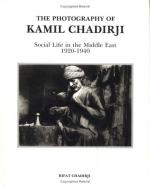|
This section contains 194 words (approx. 1 page at 300 words per page) |

|
Prohibition became law through the Eighteenth Amendment to the U.S. Constitution in January 1919. It was enforced through the Volstead Act of the same year. Prohibition made the sale, transport, and manufacture of alcoholic drinks illegal. It was backed by the Prohibitionist Party and by reformers such as ministers, doctors, and the Women's Christian Temperance Union. The ban lasted from 1919 to 1933 and was an attempt to control moral behavior.
Unfortunately, Prohibition had the opposite effect. Prohibition made drinking fashionable and exciting. Illegal bars known as "speakeasies" sprang up and the bootleggers—makers and suppliers of illegal alcohol—became heroes. Gangsters made fortunes from making and importing alcohol. During Prohibition, the penalty for selling just one drink was five years in jail. Before long, the prisons could not cope with the influx of inmates. Prohibition made the public lose respect for lawmakers and politicians. The Eighteenth Amendment was repealed...
|
This section contains 194 words (approx. 1 page at 300 words per page) |

|




